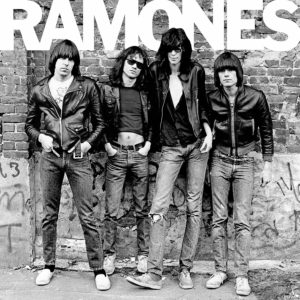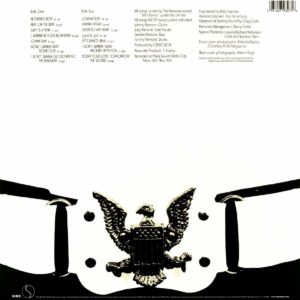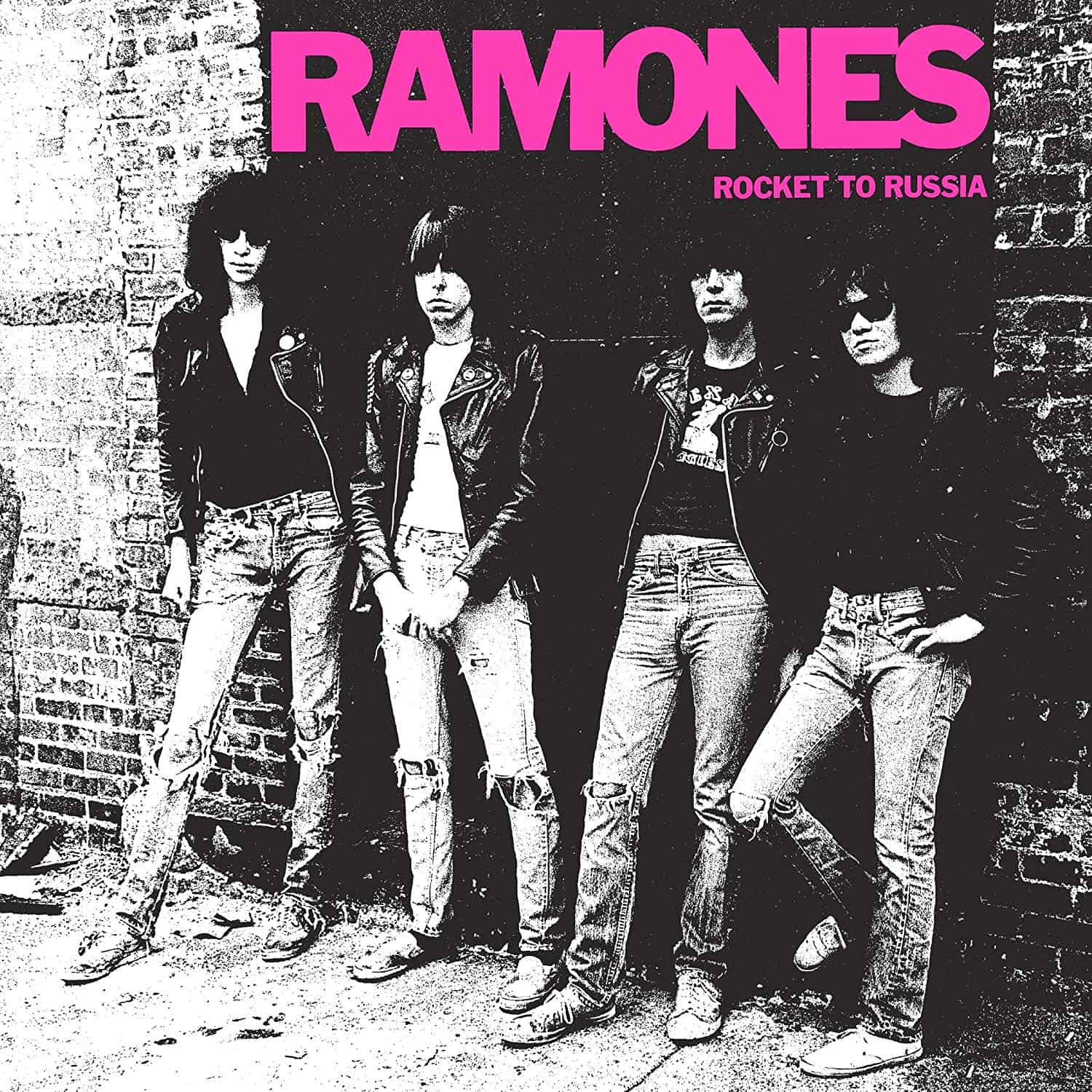Marketplace
2018 Rhino Records PRESSING
- Catalog Number RR1-6020
- Release Year 2018
- Vinyl Mastering Engineer Sean Magee and Miles Showell
- Pressing Weight 180g
- Jacket Style Single
- Original Release Year 1976
- Original Label Sire
- Original Catalog Number SASD-7520
It’s nearly impossible to nail down the precise launch point of an artistic or cultural movement. For one thing, creators never start with a blank canvas; they’re always borrowing from the past. And still, most everyone can agree something important happened on a muggy August night back in 1974 when four pasty-looking 20-somethings in leather jackets and skinny jeans who called themselves Ramones took to the stage at Manhattan’s CBGB club. They played an insanely loud, blazingly fast set of two-and-a-half-minute-and-under songs about sniffing glue and worshiping girls. The crowd had never seen or heard anything quite like it.
Among the audience members was Legs McNeil, who cofounded the influential magazine Punka year later and helped the Ramones foment a seismic shift in a rock n’ roll landscape dominated at the time by overly polished production, corporate packaging, and stagnate playlists. A mere 18 months after the aforementioned CBGB appearance, Joey, Johnny, Dee Dee, and Tommy Ramone began recording their eponymously titled debut—the first album to cohesively document and fully articulate the punk rock ethos. Ramones functioned as primitive, back-to-basics, full-tilt rock n’ roll created by social misfits for a worldwide audience of outcasts just waiting for someone to plant their flag. “Hey ho, let’s go!” was all they needed to hear.
In spite of the enthusiasm of Sire Records’ Chris Leon, who co-produced the album with Tommy Ramone, the recording budget was less than $7,000—and it shows. Some numbers, like “Now I Wanna Sniff Some Glue” and “Loudmouth” come across as decidedly thin, lacking the Panzer tank rumble and wall of decibels heard by anyone who ever attended a Ramones show. Of course, capturing such volume on tape can prove daunting for even the most talented engineers. Tommy Ramone and co-producer Tony Bongiovi did a much better job of chronicling the quartet’s signature sound on subsequent records. But the sonics of Ramonesin many ways serve as an encapsulation of punk itself: raw and lo-fi. After all, just how calculated do songs about male prostitution (“53rd & 3rd”) and corporal punishment (“Beat on the Brat”) need to be?
So, what’s the point in fussing about the record’s sound quality on multiple pressings? For all of its shortcomings, the music on Ramones rocks hard—and you can’t blame a fan for wanting it to soundthat way. The original 1976 Sire LP is mastered by Greg Calbi at Sterling Sound, and while it definitely possesses more natural texture and pacing than the horribly artificial 80s and 90s CD releases, it remains a record best experienced on a vintage mid-fi system with plenty of bass EQ.
The good news is Rhino’s latest reissue offers a noticeable improvement. Sourced from Sean Magee’s 2016 high-resolution stereo remaster, the lacquers for the vinyl were cut at half-speed by Miles Showell at Abbey Road Studios. It reveals more of the recording’s midrange energy than the ‘76 edition. Joey’s lyrics are easily decipherable, Dee Dee’s melodies actually hummable, the textures of Johnny’s Mosrite guitar and Marshall amps clearer, and Tommy’s kick drum fiercer.
Despite such attributes, it falls a bit short of Rhino’s 2011 remaster from the original master tapes. Cut by Chris Bellman, the pressing sounds wonderfully uncompressed and somewhat smoother in the upper registers than the latest half-speed remaster. Because you can turn Bellman’s version up to eleven, it gets you another step closer to what tracks like “Blitzkrieg Bop” might’ve sounded like in the studio. Rhino’s latest pressing is flat, quiet, and good, but if you really wanna get the mosh pit going, Bellman’s all-analog 2011 cut is worth the extra cash.
Ramones



 4
4
